This month, I’ve invited Dr. Lindee Strizich, GME Director of Quality and Safety to share her incredible work surrounding trainee education and engagement in Quality Improvement and Patient Safety.
Byron Joyner, MD, MPA
Vice Dean for GME and DIO
Most of us are likely familiar with the seminal publication, “To err is human,” which estimated that medical errors are the third leading cause of death in the US. While humbling, this paper catalyzed a movement in medicine to improve the safety of the care we provide to our patients. One result was that both the ACGME and the AAMC identified quality improvement and patient safety skills as core competencies for physicians. Guided by the ACGME’s Clinical Learning Environment Review (CLER) program’s feedback, GME programs across the country have been working tirelessly to ensure that our trainees’ clinical learning environments provide them this key aspect of their education. This work appears to be paying off as a recent study published in the Journal of the American Medical Association reported that the rates of adverse events for hospitalized patients has decreased significantly from 2010-2019.
As your GME Director of Quality and Patient safety, I have the distinct honor of occupying a position known as a bridging leader, which means that I work at the intersection of our GME community and medical center leadership and am fortunate to have both a GME community with so many passionate trainee and faculty leaders in QI and patient safety, and health system leadership fully committed to trainee education. Together we have improved trainee engagement in our culture of safety, as evidenced by increased patient safety event recognition and reporting, increased participation in intensive reviews (>70% of intensive reviews at UW Montlake have had trainees present!), multiple medical center QI/PS committees with trainee representation, the continued success of our Housestaff Quality and Safety Committee, and multiple trainee led quality improvement projects.
While we have made tremendous strides in improving trainee education and engagement in QI/PS within our medical centers, as with any good QI project there are always opportunities for continued improvement. I am excited to share several resources that we have been working on over the past year to further support trainee engagement in UW Medicine quality improvement and patient safety work and bolster education in this area across our community.
- QI Match – this home-grown tool has officially launched and provides a platform for trainees and faculty to find QI projects to participate in or post QI projects they are trying to build a team to complete. Thanks to Dr. Nicholas Meo for his tireless efforts in creating this resource!
- Intensive reviews – we are excited to announce that as of July 2022, UW-Montlake Intensive reviews (previously termed event reviews) will be posted on QI Match so trainees who wish to participate in an intensive review of a patient safety event will be able to find upcoming reviews to attend on this platform. We will continue to send invitations for trainee participants for adverse event reviews directly to programs directors.
- GME Quality and Safety Foundations Course – we have collaborated with the Center for Scholarship in Patient Care Quality and Safety to offer our first ever GME wide educational curriculum in QI/PS. The goal of this program is to provide a resource for our training programs to deliver basic QI/PS education to our trainees and jumpstart faculty development in this area.
- Clinical Learning Environment Webpage – our CLER webpage has been transformed and will track metrics for all of our CLER domains as well now houses resources for trainees and faculty looking for resources for QI work, QI data access, and curricular resources for our training programs.
- GMEC CLER Subcommittee – our CLER Subcommittee continues to meet monthly to coordinate QI/PS activities and educational initiatives between GME and administration and includes representation from trainees, program directors and faculty, patient safety leadership, and medical center leadership. Updates regarding committee meeting agendas will be included on the Clinical Learning Environment Webpage.
None of our progress could have been achieved without the dedication of all those who contribute to our GME community. As always, your feedback is critical to our improvement process and I welcome all feedback about how our work is impacting the University of Washington’s clinical learning environment.
Sincerely,
Lindee Strizich, MD, MSc
GME Director of Quality and Patient Safety

